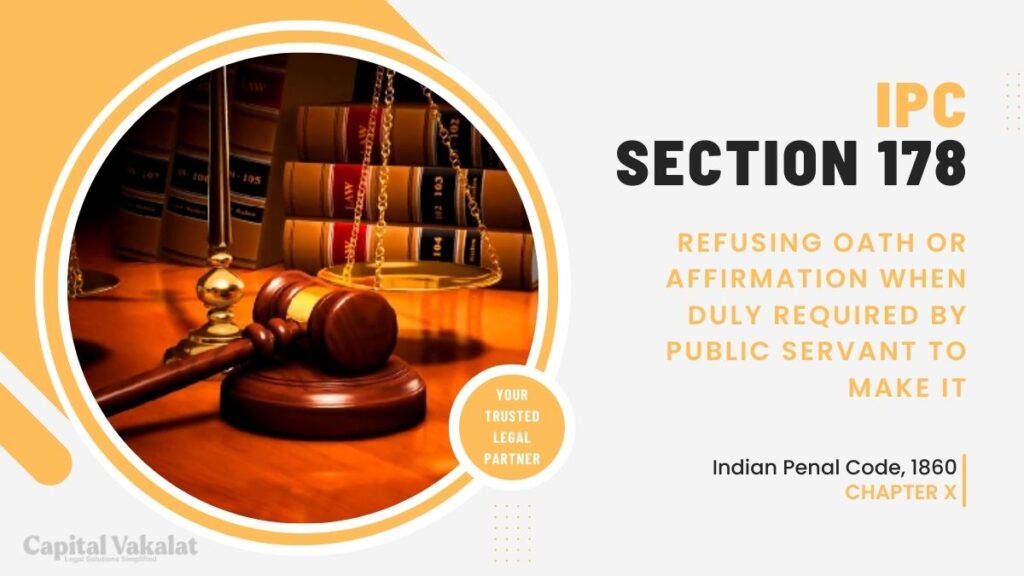In today’s discussion, we will delve into the intricacies of Section 178 of the Indian Penal Code (IPC), which deals with the act of refusing an oath or affirmation when duly required by a public servant to make it.

This section is a crucial element of the legal framework, aimed at upholding the principles of justice and accountability within the Indian legal system.
Understanding Section 178 IPC
Section 178 of the IPC is designed to ensure that individuals summoned by public servants to make an oath or affirmation do so without hesitation or refusal. It is essential for maintaining the integrity of legal proceedings and investigations, as the truthfulness of statements made under oath or affirmation is of utmost importance.
The Legal Context
In the broader context of the Indian Penal Code, Section 178 finds its place in the chapter dealing with offenses against the administration of justice. It addresses situations where individuals, when duly required by a public servant, fail to fulfill their legal obligation to make an oath or affirmation.
The Importance of Oaths and Affirmations
Oaths and affirmations hold significant value in legal proceedings. They serve as a solemn promise to speak the truth, making individuals legally accountable for the accuracy of their statements. This practice is vital for ensuring the reliability of evidence and testimonies presented in court.
Instances Covered
Section 178 of the IPC covers a wide range of situations where individuals may be required to make an oath or affirmation. This includes witnesses, suspects, or anyone involved in a legal process who is called upon to provide a statement. Refusing to do so can have serious legal consequences.
Legal Implications
When an individual refuses to make an oath or affirmation as required by a public servant, they are in violation of Section 178 of the IPC. The legal consequences for such refusal can be severe, as it impedes the pursuit of justice and the administration of legal proceedings.
Penalties
The penalties for refusing an oath or affirmation may include fines or imprisonment, depending on the severity of the case and the impact of the refusal on the legal process. Public servants have a duty to ensure that individuals comply with this requirement, as it is fundamental to the pursuit of justice.
Maintaining Legal Integrity
By upholding Section 178 of the IPC, the legal system ensures that all parties involved in legal proceedings are held accountable for their statements. This contributes to the integrity of the legal process, fostering an environment of trust and reliability.
Conclusion
In conclusion, Section 178 of the IPC plays a crucial role in upholding the principles of justice and accountability within the Indian legal system. Oaths and affirmations are not mere formalities but vital elements that contribute to the integrity of legal proceedings. Refusing to make such oaths or affirmations can lead to serious legal consequences, highlighting the significance of compliance with this section.
Frequently Asked Questions
What are the legal consequences of refusing an oath or affirmation as required by a public servant?
Refusing an oath or affirmation may lead to fines or imprisonment, depending on the severity of the case and its impact on the legal process.
Why are oaths and affirmations important in legal proceedings?
Oaths and affirmations serve as solemn promises to speak the truth, making individuals legally accountable for the accuracy of their statements, contributing to the reliability of evidence.
Who is covered by Section 178 IPC regarding making oaths or affirmations?
This section covers witnesses, suspects, or anyone involved in a legal process who is called upon to provide a statement under oath or affirmation.
How does Section 178 IPC contribute to the integrity of the legal system?
By upholding Section 178, the legal system ensures that all parties involved in legal proceedings are held accountable for their statements, fostering an environment of trust and reliability.